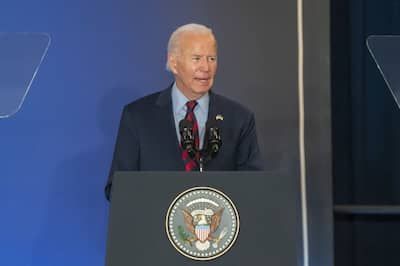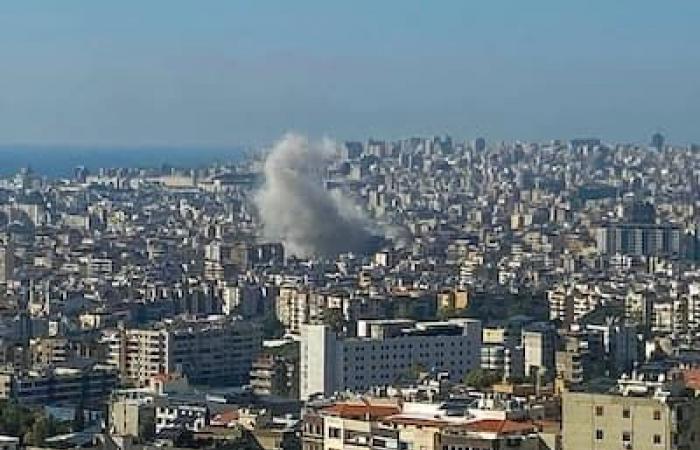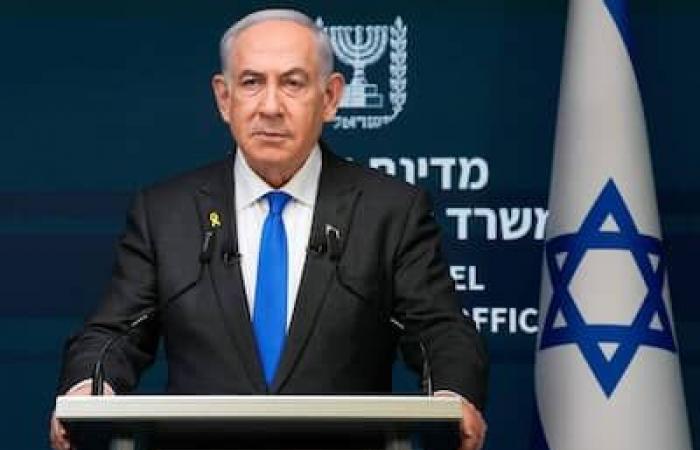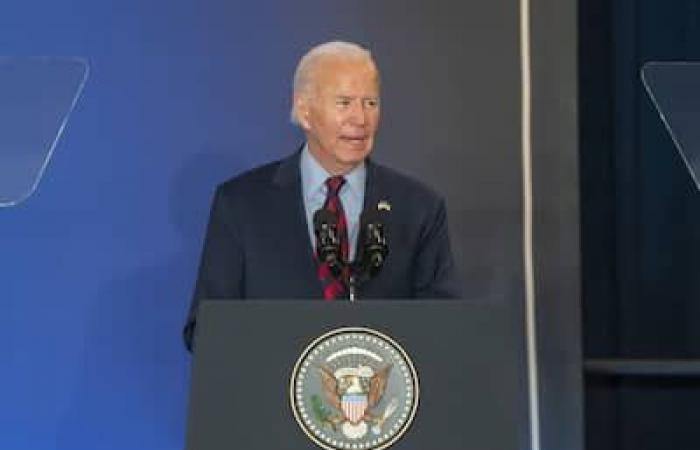Israel vowed Thursday to fight Hezbollah in Lebanon “until victory,” rejecting an international call for a 21-day ceasefire as massive airstrikes continue on the east and south of the country.
• Also read: “I wake up in a panic at night looking at my cell phone”: Quebecers of Lebanese origin worry about their loved ones
• Also read: Two Canadians die in Lebanon
• Also read: Two Canadians die in Lebanon
• Also read: Canada and several countries call for a ceasefire between Israel and Hezbollah
For the fourth consecutive day, the Israeli army carried out dozens of strikes against the Islamist movement, supported by Iran, which announced that it had targeted military production facilities near Haifa, the major port in northern Israel.
Intense bombings have particularly targeted eastern Lebanon, one of Hezbollah’s strongholds, where a strike left 20 dead, almost all Syrians, in Younine, a town near Baalbeck, according to the Lebanese Ministry of Health.
“It was indescribable, one of the worst nights we have ever experienced. We thought there was only a second between life and death,” Fadia Rafic Yaghi, a 70-year-old woman who owns a small shop in Baalbeck, told AFP.
“There are things flying over your head and you don’t know if they’re going to fall on you or not,” she said, as rescuers searched through rubble in several locations in the area.
On Thursday, the army announced that its air force had attacked 75 Hezbollah military targets in southern Lebanon and the Bekaa Valley in the east. It also said it had recently struck Hezbollah-linked infrastructure along the border with Syria.
According to the army, 45 “projectiles” were fired from Lebanon towards Israel on Thursday.
“A chance for diplomacy” – more than 600 deaths since Monday, including many civilians, have thrown more than 90,000 people onto the roads in Lebanon, according to the UN. More than 22,000 of them have entered Syria, security sources in that country said.
“A chance for diplomacy”
Faced with this escalation which threatens to drag the Middle East into war, France and the United States, joined by Arab, Western and European countries, called on Wednesday for an “immediate 21-day ceasefire” to “give diplomacy a chance.”
“It is time to reach a settlement on the Israeli-Lebanese border that guarantees security and allows civilians to return to their homes,” wrote French and American presidents Emmanuel Macron and Joe Biden.
But Israeli Prime Minister Benjamin Netanyahu said the military would continue its fight against Hezbollah “with all necessary force.” “This is a US-French proposal to which the prime minister has not even responded,” his office said.
AFP
His foreign minister, Israel Katz, said on X that there would be “no ceasefire in the north” and that the fight against Hezbollah would continue “until victory and the safe return of the northerners to their homes.”
Finance Minister Bezalel Smotrich, a far-right figure, also rejected any ceasefire, saying the goal remained “the crushing of Hezbollah.”
“Like fireworks” – in the Gaza Strip since October 7, 2023, Israel announced in mid-September that it had moved the “center of gravity” of its operations to the north of the country, to allow the return of tens of thousands of displaced residents, in this border region with Lebanon targeted by Hezbollah rocket fire for almost a year.
Cross-border gunfire has intensified since a wave of deadly explosions of Hezbollah’s communications devices, attributed to Israel, on September 17 and 18 in Lebanon, followed by an Israeli strike on September 20 on the southern suburbs of Beirut, which decapitated the movement’s elite unit.
Hamas’ ally Hezbollah has vowed to continue attacking Israel “until the end of the aggression in Gaza.”
“Like fireworks”
On Wednesday, Israeli army chief of staff Gen. Herzi Halevi told soldiers to prepare for a possible ground offensive, rekindling memories of Israel’s last war with the powerful Islamist movement in 2006.
Joe Biden, whose country is Israel’s main ally, again warned on Wednesday of the risk of a “generalized war” in the Middle East, even if the Pentagon judged that a ground offensive did not appear “imminent”.

MEGA/WENN
The Israeli military said Wednesday it had struck “more than 2,000 targets” of Hezbollah since Monday. According to the government, 9,360 rockets and missiles have been fired at Israel in nearly a year.
“It’s a real fear. We don’t know what’s going to happen, whether the rockets are going to get closer, whether they’re going to hit Haifa. We hear ‘booms’ like fireworks,” said Fida Khoury, a 28-year-old resident of the city.
Qatar, one of the mediators in the Gaza war, said Thursday it was not aware of a “direct link” between negotiations on a truce in the Palestinian territory and international efforts for a ceasefire between Israel and Hezbollah.
The war in the Gaza Strip was triggered by Hamas’ unprecedented attack on Israel on October 7, 2023, which resulted in the deaths of 1,205 people, mostly civilians, according to an AFP tally based on official Israeli figures including hostages killed or killed in Gaza.
Of the 251 abducted people, 97 are still being held in Gaza, 33 of whom have been declared dead by the army.
In retaliation, Israel has vowed to destroy Hamas, which has been in power in Gaza since 2007 and which it considers a terrorist organisation, along with the United States and the European Union.
Its military offensive in Gaza has so far killed 41,495 people, mostly civilians, according to data from the Hamas government’s health ministry, deemed reliable by the UN, and has caused a humanitarian disaster there.








